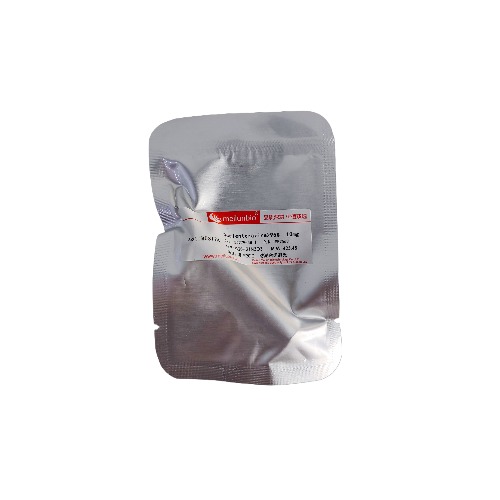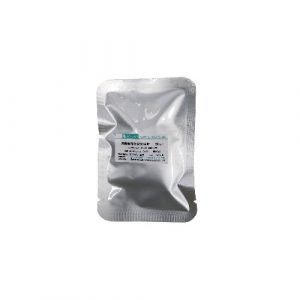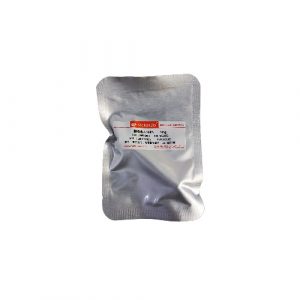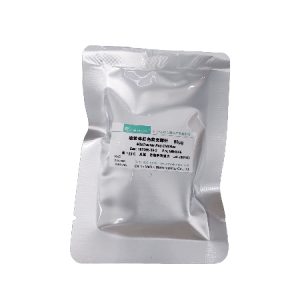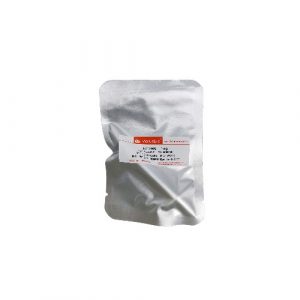Information
CAS No.:55779-48-1
Molecular Structure: 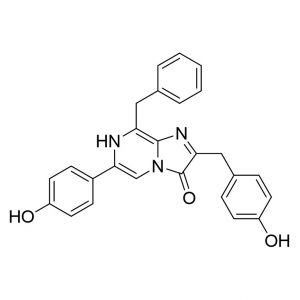
Molecular Formula:C26H21N3O3
Molecular Weight:423.46
Purity: >95%,HPLC
Appearance: Solid
Solubility(at 25°C): Soluble in Ethanol
Storage Condition: Store at -20℃, protect from light
Shipment:
Description
Coelenterazine is the most abundant naturally occurring luciferin in nature and is the light energy storage molecule for the vast majority of marine luminescent organisms (more than 75%). Coelenterazine serves as a substrate for many luciferase enzymes, such as Renal luciferase, Gaussia secretory luciferase, as well as photoproteins including aequorin and obelia. The principle of luminescence is that luciferase: which uses coelenterazine as a substrate, oxidizes coelenterazine in the presence of molecular oxygen, generating high-energy intermediates and emitting blue light in the process, with a peak emission wavelength of about 450-480 nm. unlike the luciferin/luciferase system of the beetles (or fireflies), the coelenterazine/luciferase system does not require ATP, and is therefore more convenient for in vivo studies. biofluorescence studies.
Application:
Reagent for scientific research, widely used in molecular biology pharmacology and other scientific research ,is strictly prohibited for the human body.
- Coelenterazine is often used as a luminescent substrate for reporter gene assays based on fluorescence analysis as well as in vivo animal assays;
- Detection of reactive oxygen species(ROS) levels in cells /tissues : coelenterzine can autofluoresce in an enzyme-independent oxidation system ,and superoxide anions and perxynitroso anions in cells and tissues can enhance the autoluminescence signal to detect reactive oxygen species levels.
- Coelenterazine is very suitable for detecting calcium ion levels in living cells. coelenterazine is a component of the aequorin complex (Aequorin), when the complex binds to calcim ions (Ca2+), coelenterazine can be oxidized to produce high-energy product Coelenteramide, which releases CO2 and blue fluorescence (~466 nm).
- Renilla luciferase and substrate coelenterazine are used as bioluminescent donors for the detection of protein-protein interactions in bioluminescence resonance energy transfer (BRET).
Usage Statement
Research Use Only (RUO)
All sales are subject to the General Terms and Conditions of Sale set forth on our website.

